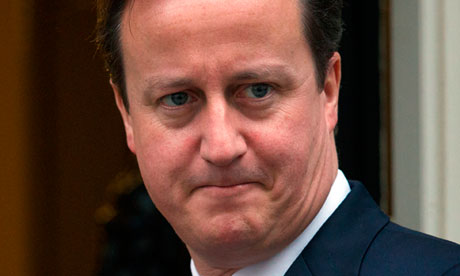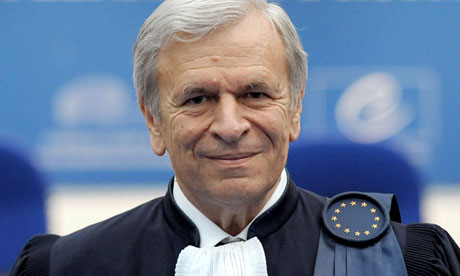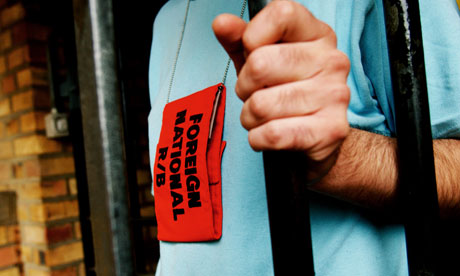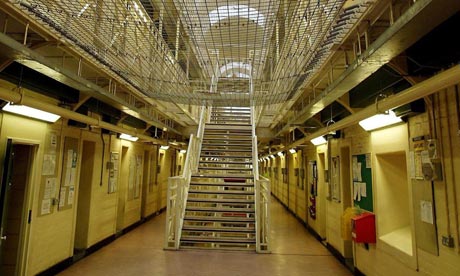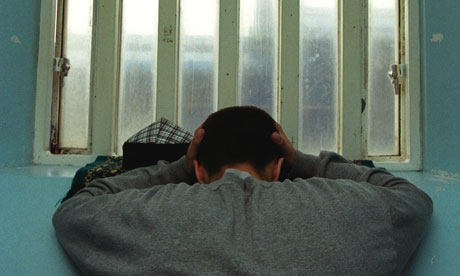Can the Tories - or Any Government - Be Trusted With Human Rights?
"The degree of civilization in a society can be judged by entering its prisons."
Dostoyevsky
David Cameron has a strong and visible distaste for being told what
to do by extranational organisations. Particularly irritating is the
European Court of Human Rights, which just won't let this votes for
prisoners thing go. You see, Europe, and much of the rest of the world
considers the ability to change one's government by voting to be a human
right.
Not a civil right, or social privilege which can be positively
provided by the state - perhaps as part of a social contract in return
for the individual upholding responsibilities, but a right which every
person has by virtue of being born. In case the events of World War II
left anyone in any doubt that protection from tyranny was a good thing,
everyone signed up to the
Universal Declaration on Human Rights,
which is extremely clear that the right to vote is universal. Of late
the European Court of Human Rights has been on our backs about the fact
that just under 90,000 of our citizens are firmly denied that right.
"Ah, but" many will ask, "isn't it more immoral for people who have
broken the law to participate in the making of the law than to take the
vote away?" Well, no. Not really. Not unless you think it would be
immoral for a gay man in the 50s, imprisoned for nothing more awful than
having sex with someone he loves, to vote to decriminalise 'homosexual
behaviour.'
On the other side of the aisle, you'll frequently hear arguments
along the lines of Medhi Hasan's on the BBC's excruciating low budget
Big Questions fill-in,
Sunday Morning Live.
"I'm not saying you give murderers, rapists and other violent criminals the right to vote. There are limits."
Sickening though the thought of sharing genetics with them may be,
rapists remain human beings. A person's humanity can neither be removed
nor relinquished - no matter how disgusting their crime. So if we
consider, as per the UDHR, that the right to vote is a natural, human
right, the only limit can be humanity.
Sadly, the general Tory attitude is less of pride in the kind of awe
inspiring civilisation we can prove ourselves to be by defending the
frequently indefensible, and more that human rights are an irritation,
like forms to fill in or roadworks. A boring obstacle between them and
what they want.
Cameron
pledged
in 2006 to replace the Human Rights Act with a British Bill of Rights,
basing his argument largely on the idea that terrorists could use the
act to avoid extradition.
It was a suggestion that, the "terrorists are humans too, we should
protect them from torture and murder as fiercely as we protect our
citizens from terrorists" argument notwithstanding, was savaged by Ken
Clarke as "xenophobic" and "anti-foreigner." And yet,
despite a few bumps in the road, it's more than likely going to happen.
Chris Grayling, who just weeks ago pinched Ken Clarke's portfolio to become justice secretary, on Sunday's
Andy Marr Show
expressed the government's irritation that we get caught up in these
rules which, let's face it, aren't really meant for the likes of us
anyway.
"If we send a message that we are going to stand up to the court,
where does that leave countries in other parts of Europe that perhaps
have a less good human rights record than us."
See? The rules no more apply to Britain in the context of
international law than they do to the chief whip in the context of his
bike and the Downing Street gates. We're just not what they were
designed for.
But the sad thing about all of this is that it's not really about
human rights. I suspect, since nobody's advocating our withdrawal from
the UN, or the UDHR, that it's not about sovereignty, or international
law having primacy over our own. No, pitifully, it's about Europe.
See, if you're David Cameron, prisoner votes are as close to a
perfect policy as you're likely to find. Opposing them makes him look
like he's finally getting tough on the 'faceless Belgian bureaucrats'
and 'unelected judges' who think they can boss us about, which looks
great in front of the wing of his party mostly comprised of the elderly
and mildly xenophobic. And while readers of a certain stripe of popular
mid-market newspaper would apparently prefer most criminals to be beaten
to a bloody pulp by homeowners before they got anywhere near a prison,
anything that makes the concept of incarceration more dehumanising is
likely to go down well with them too.
While this might make for a calming influence in the party, and an
easy news cycle for Grayling, what it amounts to is a defence of
widespread disenfranchisement.
The foremost western proponent of disenfranchisement for prisoners and felons is the United States,
where it is thought that almost 6m people
of voting age are denied the vote either because they are in prison, on
parole or even - as in 14 states - because they have entirely spent
felony convictions.
The United States has its own bill of rights.
If Cameron has his way, and we're allowed to decide who gets what
rights separately from the rest of the world, what you end up with is a
document which, despite purporting to define and defend your natural
rights as a person, can be fiddled with or cast aside by a parliamentary
majority. And Grayling's bullish originalistic reading of the European
Convention are a preview of how that conversation will go:
"The [ECHR/UDHR/British Bill of Rights] was never intended to cover
[whatever is causing particular inconvenience to the government this
week]"
National governments' obsessions with expediency, convenience and the
election cycle leave them funamentally unworthy of our trust where the
defence of human rights are concerned.

